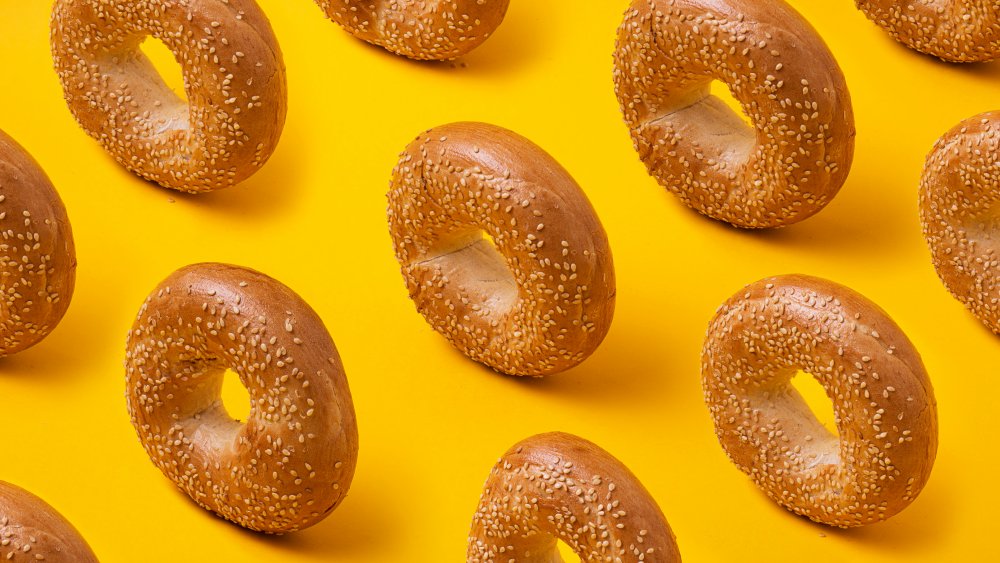What's The Difference Between Beigels And Bagels?
Bagels are without a doubt an easy, crowd-pleasing breakfast — but they were not exactly the first iteration of this doughy food. Beigels are the ancestors of bagels, and they've been around for quite some time.
First created in Krakow, Poland in the early 1600s according to Spoon University, the "bajgiel" was given as a gift to women during childbirth. Later they became a staple food for Slavic peoples. The word bajgiel stems from the Germanic word for bracelet or ring, which the food resembles. Later, as the name for the breakfast item evolved, it began to be spelled "beigel." In fact, Tim Wells, a poet and avid beigel consumer, said, "you can tell who's a nebbische 'cause they say bagel, not beigel." To pronounce it correctly, you need to say the "ei" in the word like you're pronouncing "Einstein" (via Londonist). Today, bagel and beigel are both the names that have been preserved for your favorite bready, doughnut-shaped breakfast item. How did we go from spelling the food with an "ei" to an "a"? In 1932, Americans apparently shorted the word, but otherwise, the two foods are nearly the same.
Beigel vs bagel: it's all about semantics
The primary difference between the two is that beigels are always made the old-school way, so they're boiled first to get that chewy texture you know and love; while modern bagels are not always boiled. Apart from the cooking technique, both bagels and beigels are made from similar ingredients, and both can have that chewy texture and crisp crust if boiled and baked properly.
While beigel connoisseurs might be able to parse out the difference, your average bagel eater will most likely find they taste of the two to be about the same. The difference really comes down to semantics, according to Spoon University. So, the next time you go for a bagel and you want the real deal with that signature chew, just make sure your bakery boils the food before baking them. Whether they call it a bagel or a beigel, chances are you'll still end up with that delicious, carb-filled meal you're expecting.

